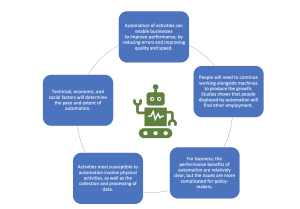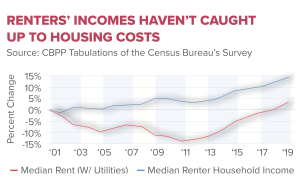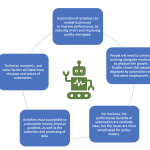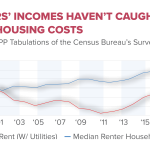Entrepreneurialism is reshaping the way we engage with our careers, marking a significant shift in how individuals perceive work and success. As the job market trends evolve, many are turning towards self-employment and freelancing, seeking to cultivate a work-life balance that traditional employment often fails to provide. This new paradigm emphasizes not only the pursuit of business success but also the importance of personal fulfillment and creativity. In a world where job security has become increasingly elusive, entrepreneurialism presents an opportunity for many to take control of their professional destinies. Erik Baker’s exploration of this phenomenon highlights the complexities and challenges that accompany the decision to embrace an entrepreneurial lifestyle, where ambition and exhaustion often coexist.
The concept of entrepreneurialism encompasses a range of approaches to work, reflecting a broader cultural shift towards self-directed careers. Many individuals are identifying as freelancers, solopreneurs, or intrapreneurs, each contributing uniquely to the tapestry of modern entrepreneurship. The rise of self-employment echoes the growing desire among workers to craft their own paths, independent of traditional corporate structures. Over recent years, the landscape of employment has transformed, with increasing numbers of professionals seeking opportunities that align with their personal values and lifestyles. This evolution underscores a significant trend in the job market, where flexibility and autonomy are becoming essential components of professional satisfaction.
The Rise of Entrepreneurialism in Modern America
Entrepreneurialism has surged in popularity over the last few decades, radically reshaping how Americans perceive work and success. More than ever, individuals identify as entrepreneurs, whether they are founders of startups, freelancers, or even side hustlers aiming to supplement their primary income. This shift in mindset reflects broader job market trends where self-employment is steadily increasing, fueled by advances in technology and changing societal attitudes towards traditional employment. People are now dreaming of building their own businesses, no longer confined by the constraints of the 9-to-5 job model.
Despite the allure of entrepreneurialism, this lifestyle carries its own unique challenges. As Erik Baker notes in “Make Your Own Job,” the pressure to continuously innovate and stay ahead in a competitive market can lead to burnout. The inherent instability of freelance work or gig-based jobs often disrupts the work-life balance that many seek to achieve, creating a paradox where the desire for freedom and fulfillment might lead to heightened anxiety and stress.
Understanding Self-Employment: Benefits and Challenges
Self-employment is a cornerstone of the entrepreneurial spirit, offering a pathway for individuals to pursue their passions while calling the shots. One of the primary benefits of self-employment is the flexibility it provides, allowing individuals to tailor their work schedules to suit their own needs rather than adhering to a rigid corporate structure. This flexibility can significantly enhance work-life balance, empowering entrepreneurs to design their work environments and schedules in ways that foster creativity and productivity.
However, this freedom comes at a cost. The lack of a stable paycheck, benefits, and the pressures of handling all aspects of a business can be overwhelming. Entrepreneurs must often wear many hats, from marketing and sales to accounting and customer service. Moreover, as job market trends continue to evolve, those engaged in self-employment find themselves competing in a crowded space, which can lead to fluctuating incomes and unpredictable job security.
Job Market Trends: Navigating the Gig Economy
The gig economy has transformed traditional job market trends, marking a shift towards short-term contracts and freelance work. More individuals are opting for flexible job arrangements over full-time employment, driven by the desire for autonomy and the potential for higher earnings. Platforms that facilitate gig work, such as ride-sharing and freelance marketplaces, have prospered, enabling millions to engage in self-employment opportunities that align with their skills and interests.
This trend towards gig work, however, is not without its disadvantages. Many gig workers face challenges related to job stability and benefits, often lacking access to the healthcare and retirement plans normally associated with full-time positions. As noted in Baker’s exploration of entrepreneurialism, the promise of independence in the gig economy often masks the underlying anxiety and unpredictability that comes with it.
Freelancing: A Pathway to Business Success
Freelancing has become one of the most prominent forms of self-employment, offering numerous opportunities for individuals seeking to harness their skills in creative and professional services. With the rise of digital platforms connecting freelancers with clients, many have found lucrative careers in fields like graphic design, writing, and programming. Freelancing offers flexibility and the chance to pursue multiple projects, often leading to higher job satisfaction and personal fulfillment.
Nevertheless, the path to success in freelancing comes with its set of challenges. Freelancers must actively seek clients, manage their finances, and handle administrative tasks that would typically be managed by an employer. This self-directed work demands strong self-management skills, as freelancers must balance their workloads and client expectations while continually adapting to the dynamic demands of the market.
Balancing Life and Work in an Entrepreneurial World
Navigating the complexities of work-life balance has become increasingly paramount for those embarking on an entrepreneurial journey. The allure of creating one’s own schedule comes with the risk of overcommitment and difficulty in setting boundaries. As individuals strive to build successful businesses, the line between personal time and work often blurs, leading to potential burnout. Recognizing the importance of managing this balance is crucial for both personal well-being and sustained business growth.
Entrepreneurs are challenged to establish practices that promote a healthy work-life balance, including clearly defined working hours and dedicated downtime. Techniques such as time-blocking, setting specific work hours, and utilizing technology to streamline tasks can help maintain the equilibrium between professional ambitions and personal health. Ultimately, achieving this balance is a key component of long-term success and happiness in entrepreneurship.
The Evolution of Entrepreneurial Management
The concept of entrepreneurial management has evolved significantly over the years, transitioning from a focus solely on production efficiency to a more holistic approach that values employee inspiration and engagement. Fortunately, modern business success increasingly depends on leaders who not only manage but also cultivate talent within their teams. This evolution reflects a cultural shift that recognizes the importance of innovation, change, and the nurturing of a creative workforce.
As noted by Baker, the changing landscape of entrepreneurial management also involves fostering a sense of belonging among employees, transforming them from mere subordinates into active contributors to the company’s vision. As organizations embrace this new approach to leadership, the entrepreneurial spirit permeates throughout corporations, giving rise to an environment in which creativity and collaboration thrive.
The Role of Self-Help Literature in Shaping Entrepreneurialism
Self-help literature has played a fundamental role in shaping the narrative around entrepreneurialism in America. Influential authors, such as Napoleon Hill, have championed the notion that success is not merely the result of hard work, but rather the product of a mindset rooted in personal development and self-promotion. This insight has resonated widely, driving individuals to pursue self-employment as a means of achieving personal and financial success.
As communities have embraced this literature, a culture of self-empowerment and entrepreneurial thinking has flourished. This has sparked a nationwide movement towards individualism in the workplace, promoting the idea that anyone can carve out their own path irrespective of traditional employment structures. As career opportunities continue to become more decentralized, self-help literature remains a significant influence, encouraging both personal growth and entrepreneurial ventures.
A Future Embraced by Freelancers and Entrepreneurs
Looking ahead, the future of work appears to be increasingly dominated by freelancers and entrepreneurs. As traditional employment roles evolve in response to technological advancements and changing consumer behavior, many individuals feel empowered to create their own opportunities and brands. The rise of remote work and flexible job structures heralds a new era where people can operate independently while at the same time contributing to their communities.
This growing independence presents both opportunities and challenges. On one hand, there is the potential for innovative services and products that cater to niche markets. On the other hand, the struggle for stability and security persists. As more individuals navigate this entrepreneurial landscape, it will be vital for them to cultivate resilience and adaptability if they wish to thrive in a world where self-employment continues to gain ground.
Navigating Economic Changes with an Entrepreneurial Mindset
Thriving in a fluctuating economy requires an entrepreneurial mindset that embraces change and innovation. The ability to pivot and adapt to the ongoing economic landscape has become essential, particularly as global trends impact local markets. Entrepreneurs must cultivate an awareness of emerging opportunities within economic shifts, recognizing areas where traditional job markets may be declining but entrepreneurial ventures are on the rise.
By fostering a proactive approach to economic challenges, individuals can position themselves as innovators rather than victims. Leveraging skills, networking, and creative problem-solving can help budding entrepreneurs navigate economic uncertainty, ultimately emerging stronger and more successful. This mindset not only facilitates personal growth but contributes to a vibrant and resilient economy overall.
Frequently Asked Questions
What is entrepreneurialism and how does it relate to self-employment?
Entrepreneurialism is the practice of identifying opportunities and creating new ventures to generate profit and economic value. It is closely related to self-employment, as many entrepreneurs operate as independent business owners, utilizing their skills and creativity to establish their enterprises rather than working for traditional employers. This shift towards self-employment reflects the growing trend of individuals taking control of their career paths through entrepreneurial methods.
How can entrepreneurialism influence job market trends?
Entrepreneurialism significantly impacts job market trends by driving innovation and creating new job opportunities. As more individuals embrace entrepreneurship, they introduce unique services and products, often leading to the formation of new industries. This shift can also affect employment dynamics within existing industries, prompting companies to adapt to changing consumer demands and the influx of freelance workers.
What are the key factors for achieving business success in today’s entrepreneurial landscape?
Achieving business success in today’s entrepreneurial landscape requires a combination of innovative ideas, effective marketing strategies, and strong networking abilities. Entrepreneurs should focus on understanding market needs, leveraging technology to enhance operations, and maintaining adaptability to changing industry trends. Furthermore, developing a solid work-life balance is crucial to sustain motivation and manage the pressures of entrepreneurship.
How does freelancing fit into the broader concept of entrepreneurialism?
Freelancing is a key component of entrepreneurialism, as it allows individuals to operate as independent contractors who provide services to various clients. This model offers flexibility in work arrangements and aligns perfectly with the entrepreneurial spirit, focusing on personal agency and the pursuit of diverse income streams. As the workforce evolves, freelancing continues to grow in popularity, reflecting broader trends in self-employment.
What challenges do entrepreneurs face regarding work-life balance?
Entrepreneurs often face significant challenges in achieving work-life balance due to the demands of running a business. Long hours, high expectations for success, and the need for constant innovation can lead to burnout. To counteract these pressures, entrepreneurs should prioritize setting boundaries, delegating tasks, and incorporating self-care practices into their routines, ultimately enhancing both personal well-being and professional productivity.
| Key Point | Description |
|---|---|
| Definition of Entrepreneurialism | Entrepreneurialism encompasses various roles, including traditional entrepreneurs, managers, and freelancers, embracing a new work ethic focused on innovation and personal branding. |
| Historical Context | The rise of entrepreneurialism in America can be traced back to the end of the 19th century, shifting away from an industrial work ethic due to structural unemployment. |
| Influence of Self-help Literature | Books like ‘Think and Grow Rich’ shaped societal views, encouraging individuals to turn work into a personal calling, emphasizing creativity and self-marketing. |
| Impact on Employment | During economic downturns, enlarging entrepreneurial possibilities through freelance work became essential for sustaining income and fulfillment. |
| Modern Perspectives | Today, entrepreneurialism symbolizes a state of risk and innovation amidst technological displacement and evolving work patterns. |
Summary
Entrepreneurialism has fundamentally reshaped the landscape of work in America, emphasizing creativity, innovation, and personal responsibility. As individuals increasingly seek fulfillment and meaning through their work, the rise of entrepreneurialism offers both opportunities and challenges. With continuous evolution in the workforce driven by technology and psychological shifts, understanding these dynamics is essential for navigating the modern economy.











